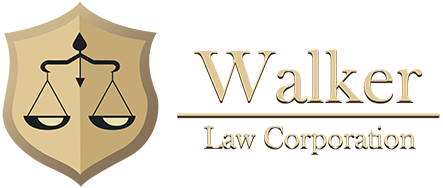Civil Procedure Before Trial – Motion to Strike All or Any Pleading
To commence a lawsuit a Plaintiff/Petitioner will file a Complaint, Objection or other pleading which requests relief from the Court. In civil matters a Complaint for damages is filed, in Family Court a Petition for Dissolution of Marriage is filed and in Probate Court a Petition for Administration of the Trust and/or Probate. Regardless of the Court any party may file a Motion to Strike all or a portion of any Pleading, “Any party, within the time allowed to respond to a pleading may serve and file a notice of motion to strike the whole or any part thereof…” (Cal Code Civ Proc § 435) http://leginfo.legislature.ca.gov/faces/codes_displaySection.xhtml?lawCode=CCP§ionNum=435.
Prior to filing any Motion to Strike the Moving Party must Meet & Confer with opposing counsel to determine if an agreement can be reached and the necessity of filing a Motion to Strike can be avoided, “Before filing a motion to strike pursuant to this chapter, the moving party shall meet and confer in person or by telephone with the party who filed the pleading that is subject to the motion to strike for the purpose of determining if an agreement can be reached that resolves the objections to be raised in the motion to strike.” (Cal Code Civ Proc § 435.5) https://codes.findlaw.com/ca/code-of-civil-procedure/ccp-sect-435-5.html
Both Parties are required to provide legal support for their position during the Meet & Confer process to allow the opposing party the opportunity to review the legality of the opposing party’s position, “As part of the meet and confer process, the moving party shall identify all of the specific allegations that it believes are subject to being stricken and identify with legal support the basis of the deficiencies. The party who filed the pleading shall provide legal support for its position that the pleading is legally sufficient, or, in the alternative, how the pleading could be amended to cure any legal insufficiency.” (Code Civ. Proc., § 435.5) https://codes.findlaw.com/ca/code-of-civil-procedure/ccp-sect-435-5.html
The Meet & Confer process is required to be initiated by the Moving Party at least five days prior to the date required for filing the Motion to Strike but if the Parties are not able to conduct the Meet & Confer conference prior to the deadline the Moving Party can obtain an automatic 30-day extension by filing a Declaration with the Court regarding their efforts to Meet & Confer prior to the deadline, “The parties shall meet and confer at least five days before the date a motion to strike must be filed. If the parties are unable to meet and confer at least five days before the date the motion to strike must be filed, the moving party shall be granted an automatic 30-day extension of time within which to file a motion to strike, by filing and serving, on or before the date a motion to strike must be filed, a declaration stating under penalty of perjury that a good faith attempt to meet and confer was made and explaining the reasons why the parties could not meet and confer.” (Code Civ. Proc., § 435.5) https://codes.findlaw.com/ca/code-of-civil-procedure/ccp-sect-435-5.html
The purpose of these Statutes is to ensure that the Parties have the opportunity to review the opposing parties’ legal position prior to filing any Motion to Strike.
A Motion to Strike can be used to Strike any improper matter from a Pleading and/or any improper manner of Pleading,
(a) Strike out any irrelevant, false, or improper matter inserted in any pleading.
(b) Strike out all or any part of any pleading not drawn or filed in conformity with the laws of this state, a court rule, or an order of the court. (Cal Code Civ Proc § 436) https://casetext.com/statute/california-codes/california-code-of-civil-procedure/part-2-of-civil-actions/title-6-of-the-pleadings-in-civil-actions/chapter-4-motion-to-strike/section-436-authority-of-court-upon-motion
The grounds for filing a motion to Strike must appear on the face of the challenged Pleading or must be based upon a matter for which Judicial Notice (See Blog on Judicial Notice) may be taken,
(a) The grounds for a motion to strike shall appear on the face of the challenged pleading or from any matter of which the court is required to take judicial notice. (Cal Code Civ Proc § 437) https://law.justia.com/codes/california/2005/ccp/437c-438.html
Have Questions On Civil Procedures in Los Angeles and Orange County?
Long Beach Law Office
Address: 444 W Ocean Blvd #800, Long Beach, CA 90802,
Phone: 714-943-2336
Email: sam@attorneysamwalker.com
Newport Beach Law Office
Address: 444 W Ocean Blvd #800, Long Beach, CA 90802,
Phone: 714-943-2336
Email: sam@attorneysamwalker.com



